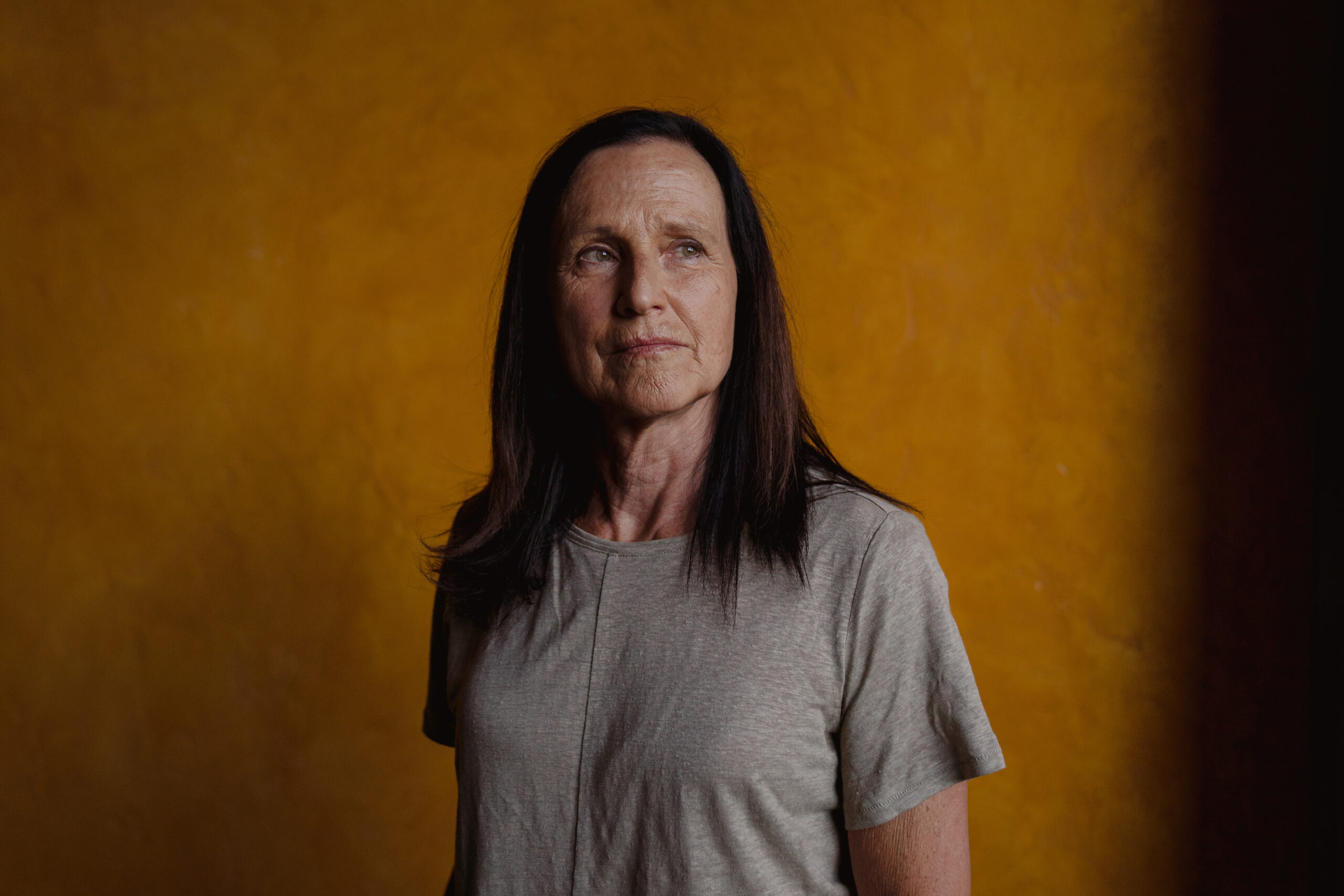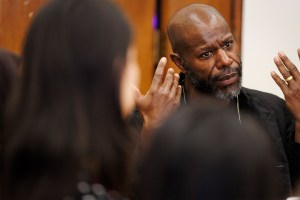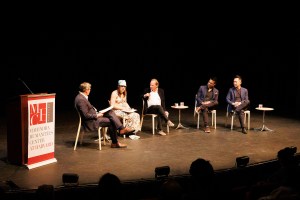
Professor Margaret Redsteer will discuss the challenges presented by global warming at this year’s Tanner Lectures, April 12 and 13.
Photo by Jovelle Tamayo
Combining Earth science, Native knowledge in climate change battle
Margaret Redsteer will draw on her research on tribal lands to discuss barriers and solutions to adaptation, resilience at Tanner Lectures
Margaret Redsteer first began studying Earth sciences because she wanted to better understand the environmental challenges of the tribal land she lived on in northern Arizona. It was the 1980s, and getting a degree had become a recent financial necessity after she and her family had been relocated to Flagstaff as part of the Navajo Hopi Land Settlement Act, which was intended to settle a long-standing tribal land dispute. She hoped to study issues relevant to the area, like clean water access.
She said it came as a “big surprise” to learn about the concept of climate change, once she graduated and started work as a federal government researcher. Under the early 2000s Bush administration, she said, it seemed like few were talking about it publicly.
Redsteer has since dedicated her career to studying landscape processes like wind and water erosion and changes to vegetation and climate. Much of her work has been conducted in Native areas, including Navajo and Hopi land in the Southwest and the Crow reservation in Montana where her family is originally from. And now Redsteer, a professor at the University of Washington Bothell, will discuss the challenges to dealing with global warming at this year’s annual Tanner Lectures on Human Values on April 12 and 13.
“We need a coherent climate change adaptation policy,” Redsteer said. “The impacts of climate change are upon us, and we have to deal with the impacts too.”
The free public lectures, which are hosted annually by the Mahindra Humanities Center, seek to advance scholarly and scientific learning in the field of human values that are relevant to the human condition.
“The committee was eager to invite someone who could speak on environmental issues,” said Mahindra director Suzannah Clark. “[Redsteer] has a depth of experience bringing together Indigenous knowledge and scientific data, while addressing the inequities of how climate change affects marginalized populations, agriculture, grazing, and infrastructure. The combination of her cultural and scientific interests will speak to a broad audience here at Harvard.”
Redsteer will give two lectures, the first titled “On Resilience: A Capacity to Absorb Disturbances and Shocks,” and the second titled “Barriers to Transforming Climate Dialogues.” While much of Redsteer’s work for the U.S. Geological Survey focuses on Indigenous communities, she wants to make it clear that her lectures pertain to everyone.
“We’re all natural-resource-dependent communities,” Redsteer said. “We all use fossil fuels, we all use minerals, we all use water, we all breathe air.”
The lectures will draw from her experience studying drought and aridity in the Southwest through geomorphologic mapping, sediment sampling, seasonal vegetation surveys and meteorological monitoring, and investigations of land use history and policy. She’s seen changes like more frequent sand and dust storms and a decline in crane migrations in wetlands.
Her research has incorporated Indigenous knowledge alongside the scientific processes, holding open-ended conversations with people about changes they’ve seen on the land. Navajo Nation residents reported to Redsteer that they were seeing fewer plants and drier soil conditions in the spring months, an observation that was later confirmed by a scientific study showing the cause to be warmer winters with less snowfall.
“Part of what we wanted to do was get a better idea of the changes that they’ve experienced, and how those changes have affected their livelihoods,” Redsteer explained. “We were really focused on what the community needs were, rather than what the science needs were.”
Redsteer’s lectures will also address some of the barriers facing climate adaptation, such as the lack of an overarching government policy that can put people-centered programs in place.
“You end up with agencies addressing the needs of people who are already well-connected, who have privileges, whereas the people who are not connected or who are more marginalized don’t have a way of expressing their needs,” Redsteer said. “… I think that there’s a lot of room for people to work together on climate change, and we need to start thinking about what we can do to help one another.”
The Tanner Lectures will take place at 4 p.m. both days in the John Knowles Paine Concert Hall on the second floor of the Fanny Peabody Mason Music Building.




